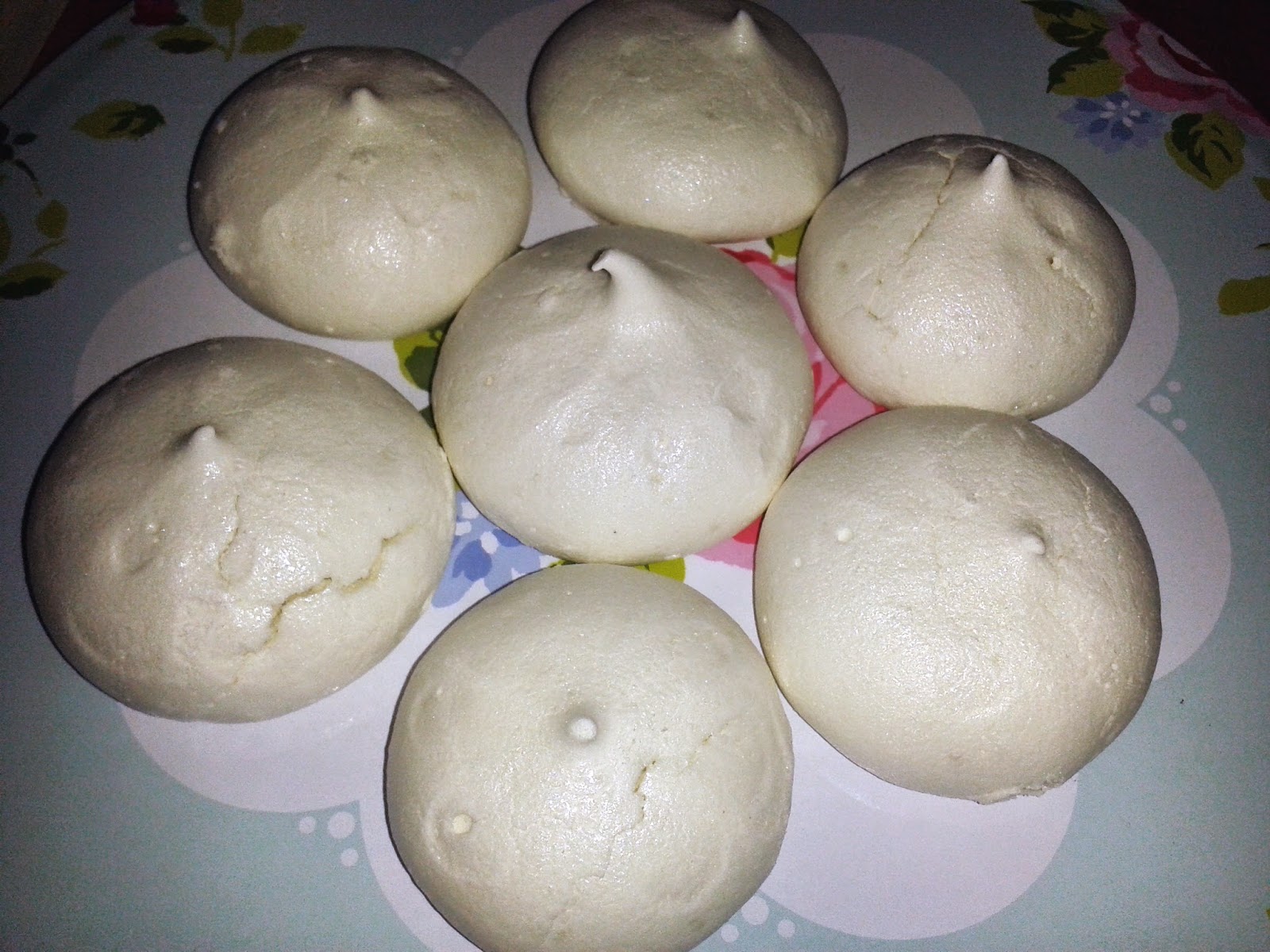Vegan Meringues
Unless you've been hiding under a rock, you'll have probably heard of the latest happening in the vegan world: chickpea meringues. I'm not talking about chickpea-flavoured meringues, I'm talking about meringues made from the water from a tin of chickpeas! I know it sounds a little weird, but vegan food blogger Goose Wohlt saw a French video in which chocolate mousse was created using the whipped chickpea water. Goose Wohlt coined the term aquafaba for this liquid (loosely, Latin for water = aqua, bean = faba.). The news that vegan meringues could be made this way spread like wildfire amongst the online vegan community, with a dedicated Facebook group set up for people to share their recipes, successes and failures. I have never made egg meringues and I have only attempted vegan meringues once before using a commercial egg replacer but I did not have much success. After seeing some amazing pictures in the Facebook group, I couldn't wait to have a go myself. 


1. Pour the aquafaba into a large bowl and whip using an electric whisk or food mixer until it turns white and foamy - the soft peak stage. This could take a few minutes, so be patient. 2. Keep whisking the aquafaba and slowly add the sugar about a tablespoon at a time, making sure you mix it in well before adding the next spoonful. The mixture should look glossy and hold its shape in stiff peaks. Try turning your bowl upside down; if the mixture doesn't pour onto your head, it's ready! 3. Once you are happy that your mixture is stiff enough, taste it to see if it is sweet enough for your liking, then add more sugar if necessary. Make sure the mixture isn't gritty, if it is then whisk it a little more.4. Spoon or pipe your meringues onto a baking tray covered with baking parchment. Bake at around 100C/215F for 90 minutes.
5. When the meringues are done, turn the oven off and leave them in to cool to room temperature with the oven door ajar.
6. Store the meringues in an airtight container. They should stay fresh for a few days. I can't wait to experiment with more meringue recipes such as pavlova, lemon meringue pie and macaroons! Let me know if you have a go at making vegan meringues, I'd love to hear how they turn out. 






No comments:
Post a Comment